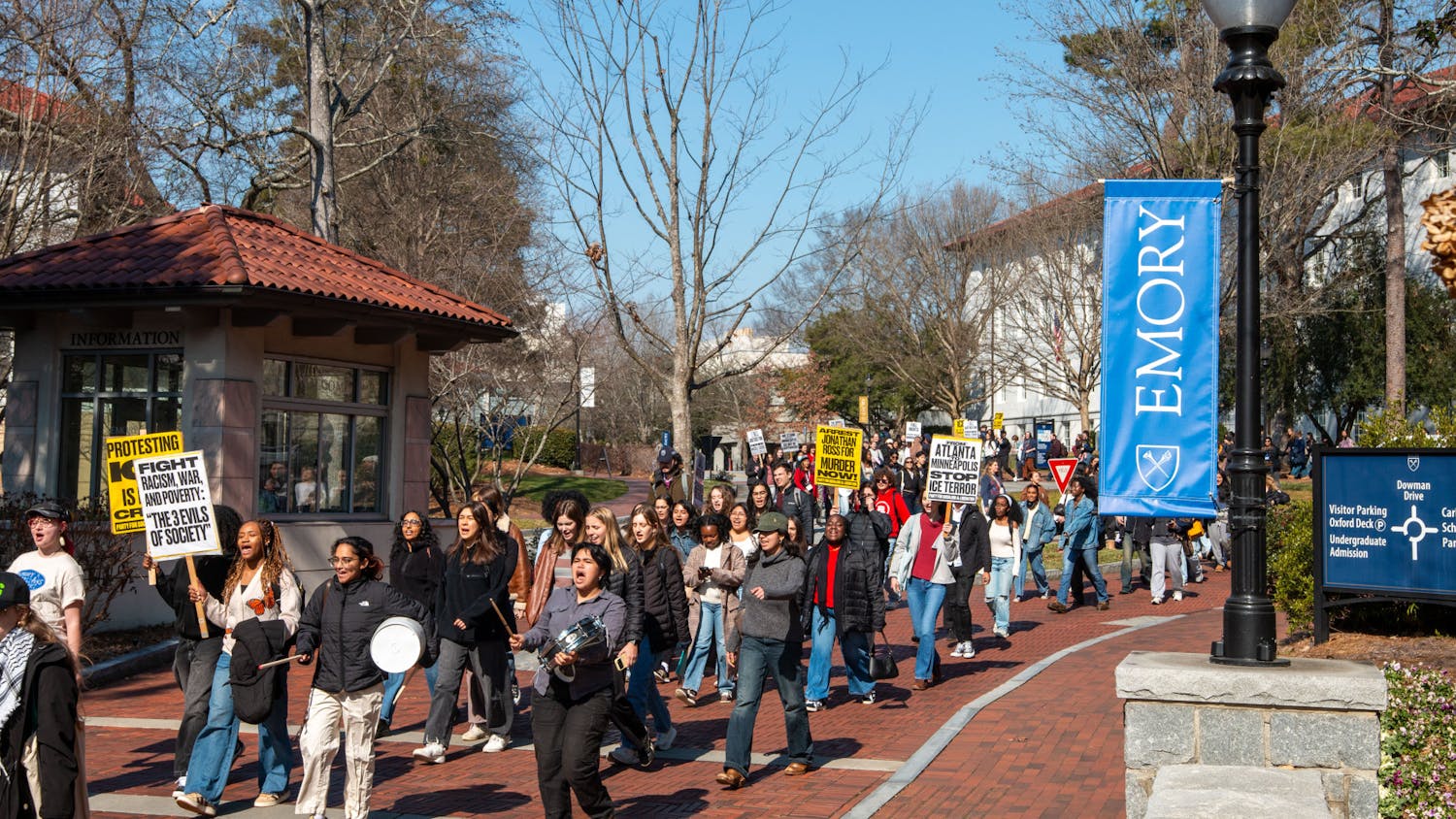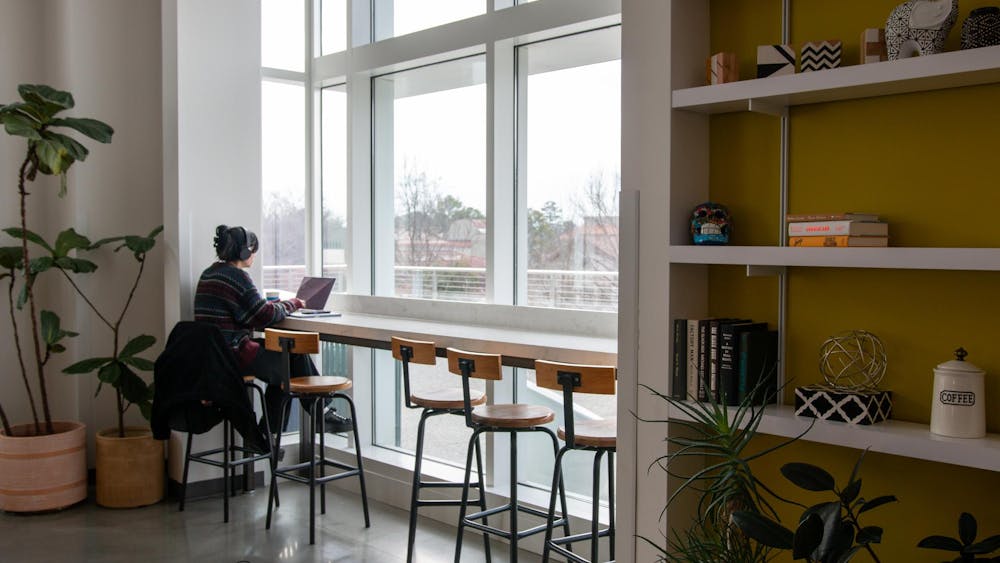Chinese overseas students held mourning events at Emory for the victims of the Urumqi fire on both Atlanta and Oxford campuses and spread out blank A4 papers to signal protests. Students designed posters that read: “liberty or death,” “a healthy society should not have only one opinion,” “the government should not seize the pandemic as a chance to expand its authoritarian control.” These events, apart from supporting domestic Chinese citizens to win freedom against the authoritarian Chinese Communist Party (CCP), are a chance for Chinese students at Emory to reflect on their freedom that is taken for granted. More than just an accident, the event, along with other tragedies that have happened in China since the zero-COVID policy, has important correlations with the freedom of Chinese citizens.
After the initial protests started in China, the fire of A4 Revolution has spread to overseas Chinese students. In A4 Revolution, protestors hold blank A4 papers (standardized printing paper) to both protect themselves from the censorship of Chinese Communist Party (CCP) and satirize CCP’s strict ban on any speech that potentially affects their authoritarian control. The revolution broke out after a fire broke out in Urumqi, the capital of Xinjiang on Nov. 24. The fire killed at least 10 due to the strict COVID-19 lockdown, which prevented the firefighters from putting out the fire in time. This elicited the public’s anger toward the zero-COVID policy since 2020, causing protests to break out across the country and among overseas Chinese citizens.
I was one of the lucky few in China to have carried out the ‘run philosophy,’ which means running away from China to a freer country. This has been a buzzword in China since the implementation of the zero-COVID policy, and achieving it used to be my biggest goal in life. When I successfully came to the U.S. for university, I thought I was finally “free” from the zero-COVID policy, the brainwashing education of CCP’s politics and ideology and the totalitarian government policies. I have gradually grown more and more distant from the unfortunate domestic news. However, when I saw that protesters in Shanghai were arrested by the police at the mourning events, I was shaken. If protesters in China were using their restricted freedom to speak up against CCP’s zero-COVID policy and more totalitarian rules, then what am I using my privileged freedom for?
Looking back, I realize my perception of freedom has narrowed down again and again. When I was little, I thought freedom meant exploring around the world without restrictions. However, when I grew up a little, I found that songs in my favorite musical “Les Misérables”were banned in my country. I asked my music teacher, and she told me that there were certain things only Chinese citizens are restricted from. “Les Misérablestalks too much about revolutions,” she said. “In China, you don’t talk about these.” These words were the constant answer when I asked why I couldn’t travel, speak, watch or listen with freedom. In middle school, I had the chance to exchange in the U.S., and when discussing and researching with my classmates, I gradually learned about terms like travel restrictions, censorship and the internet firewall created by the CCP, and my desire for freedom became just to see as much of the world as possible within China’s restrictions. Then, COVID-19 hit and after three years of forced lockdowns, stricter speech control and privacy tracking, my only demand for freedom was to walk out of the apartment and avoid being sent to mobile cabin hospitals.
However, even after coming to the U.S. freedom is still not guaranteed. When I told my parents about my wish to voice Chinese people’s opinions on campus, my parents told me to stop. “There might be CCP spies watching over your actions,” my parents said. “If you have to do this, do it low-key.” In the U.S., there are still spies from CCP who monitor international Chinese citizens not to speak against CCP policies. When I complained to my friend about my worries for Chinese domestic protestors and my helpless anger toward the CCP triggered by the news in China, she said nothing. After a long silence, she uttered, “I do not talk about politics.”
When I interviewed Chinese students at Emory for their opinions on the A4 Revolution, some noted they were against the protests because they worried about “degrading” China’s international image.
“I think it’s best not to expose our country’s weakness to the world,” Lucy Liu (24Ox) said. “Knowing what’s happening for domestic Chinese may make foreigners look down upon us.”
On the other hand, some students avoid conversations that are potentially against CCP’s policies completely, fearing CCP’s monitoring. Therefore, even when facing such traumatic events happening in China, many international Chinese students still shun away from the topic of fighting for freedom. For many of them, CCP’s censorship has taught them to shut up and be wary all the time.
Such a phenomenon worries students who support protests.
“I feel split. I have been romanticizing China as such a nice place since I came here. I miss the food, the people and literally everything there, but I have almost forgotten that the place was so deprived of freedom, and this struck my love for China so hard,” said Yvette Wang (24Ox).
It was after all these conversations that I realized our definitions for freedom were all romanticized and superficial; the right to freedom, far from guaranteed, remains a vague concept for many Chinese citizens. When Chinese citizens talk about different voices and protests, we automatically step back and censor ourselves before critically viewing governmental policies. I remind myself of the childhood wish that has been gradually destroyed by CCP’s freedom-restricting policies. I have always subconsciously avoided analyzing why my freedom was deprived. Why would I fear looking at my right to freedom? Somehow, I feel vulnerable because of the extremely limited things I could do to change and I feel ostracized by the different political opinions from the general trend. However, now it is time to review how our concept of freedom has gradually disintegrated. I saw that in Shanghai, my home city, the police started doing stop-and-checks on people’s phones after the protests, checking if there are overseas apps such as Instagram or potential anti-CCP messages. I realized if I do not fight for the freedom of travel and the freedom of speech for Chinese people, my parents are going to be the ones who suffer, and I will never be able to return home because of travel restrictions and censorship on international students’ mobile apps. Now I am living at a safe distance and learning in a university with diverse perspectives, it’s time to ponder about protesting against unfair restrictions on freedom.
The A4 Revolution is a process for international Chinese students to reflect on the vague idea of freedom. Although we are relatively safe from censorship when we’re in the U.S., our friends and family are not. When people in more corners around the world are deprived of freedom, our voices matter.
At the mourning event, students reflected on their responsibility to fight for more freedom.
“I feel obliged to stand here today because we are too privileged,” Jackie Zhou (24Ox) said. “We have to use our privilege for something, for our friends and family back home and for more people whose freedom to speech and to life, is deprived.”
Student organizers still encouraged people at the event to wear masks. The masks not only protected us from potential spies, but also reminded us that we are never free from the restrictions in China, and we have to keep fighting for personal freedom. Standing silently together at the mourning event, Chinese international students finally started to think about the freedom that we should still be fighting for instead of “running” away from it.
Certainly, I do not expect our voices will be heard by the CCP government nor will it change its authoritarian governing overnight, but I hope that through reflection, international students who have more freedom to act can make the voices of protest stronger, prevent another generation from passively receiving ideological education by the CCP and spread the seed of conscience, disobedience and critical thinking among those whose freedom are deprived.
After days of massive protests that have not happened since the 1989 Tiananmen Protest, China is slowly easing its zero-COVID policy. While people are celebrating, the fights and the reflection on policy and freedom should not be forgotten. Our work is never finished, and the process of reflecting on freedom still continues.
Amiee Zhao(24Ox) is from Shanghai, China.









